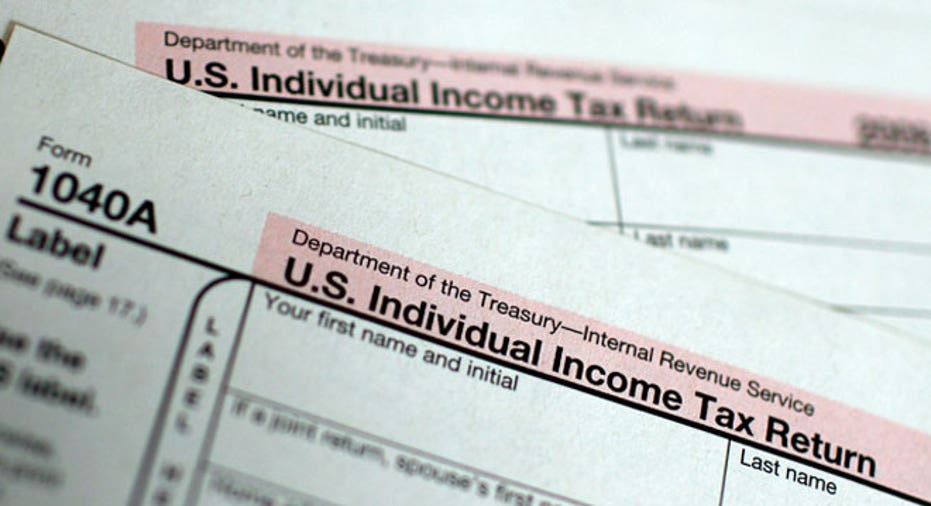7 Tax Mistakes You Don't Know You're Making

Tax season is here, and while there is no escaping taxes in general, you may be paying more than your fair share.
Unfortunately, some of the errors that cost you money at tax time may be hard to detect. Read what three finance professionals say are the most common -- though not necessarily most obvious -- mistakes that taxpayers make.
Mistake No. 1: Missing opportunities for tax savings
"One thing I would say off the bat is a lot of people need to start thinking about their taxes in December," says Bob Wheeler, a CPA in Santa Monica, Calif. and author of "The Money Nerve."
For those who have more than a basic return, Wheeler says there are plenty of opportunities to maximize deductions or claim credits. However, taxpayers typically must take action before the end of the calendar year.
Steve Warren, the Director of Taxation at Lehrman, Flom & Co. in Minneapolis, Minn. takes it one step further. He says taxpayers should be communicating with their CPA throughout the year and prior to major life events such as getting married, divorced, having children, changing jobs or receiving an inheritance.
"Some good opportunities to save our clients some money have been lost," says Warren of those who wait until tax season to tell their CPA about life changes from the previous year.
Mistake No. 2: Failing to negotiate for exemptions in a divorce decree
If people communicated more with their CPAs, they might be able to avoid a mistake Patrick McGonigle says he sees frequently. Namely, during a divorce, some parents neglect to negotiate for their ability to take tax exemptions for their children.
McGonigle, a CFP with CJM Wealth Advisers in Fairfax, Va., notes that tax exemptions can be shared between parents, but if the divorce decree doesn't address the issue, the exemptions automatically fall to the parent with whom the children live most often. He offers the following example of just how much a parent stands to lose if they don't negotiate for a share of the exemptions.
In addition, only that parent who claims the child as a dependent is entitled to receive the $1,000 child tax credit, the Lifetime Learning Credit or the American Opportunity Credit.
Mistake No. 3: Keeping poor records
Both Wheeler and Warren say another common mistake taxpayers make is not staying organized throughout the year.
For example, Wheeler says he often has clients -- particularly contract workers -- who do not track their income. Then, at tax time, they may not realize they are missing a W-2 or 1099 and fail to claim that income. Unfortunately, the IRS usually doesn't miss those little details, which can result in serious penalties and fines later.
Mistake No. 4: Forgetting to deduct unamortized points when refinancing
Another common mistake Warren sees is failing to claim deductible unamortized points when refinancing or selling a home with a mortgage.
For example, let's say you pay $1,000 in points when you refinance a mortgage. Typically, you must amortize the points over the life of the loan and can only deduct a portion of the points each year. However, if you refinance and still have $900 in unamortized points left on the original mortgage, you can deduct that entire amount in the year of the refinancing.
"The points are fully deductible in the year of the home purchase or refinancing when the loan proceeds are used entirely to acquire or improve the home," Warren says.
Mistake No. 5: Overlooking important tax credits
Many lower-income families might miss out on lucrative tax credits by simply failing to file.
"A lot of times, people don't understand that just because you don't owe taxes doesn't mean you don't want to file a return," says Wheeler.
For example, families not filing could miss out on refundable tax credits such as the Earned Income Credit and the American Opportunity Credit. Although not refundable, Wheeler says the Saver's Tax Credit is another commonly missed credit that targets lower-income households.
Mistake No. 6: Improperly calculating the basis for investments
For those with investments, failing to consider reinvested dividends or capital gains could result in taxpayers using an incorrect basis for the purpose of calculating capital gains and losses on a sale.
"They are either reporting too much in capital gains or too little in capital loss and, either way, paying too much in tax," says Warren.
Mistake No. 7: Skipping itemized deductions
Finally, taxpayers who automatically take the standard deduction may be doing themselves a disservice.
"You hear about something being tax deductible, but it may not be deductible to you," says Warren. "Some tax breaks are only available as itemized deductions and will not reduce your tax bill if you are using the standard deduction."
Expenses that can be itemized include medical expenses in excess of 10 percent of your adjusted gross income, charitable contributions, property taxes, car registration fees based upon a vehicle's value, tax preparation fees and mortgage interest. Wheeler also advises unemployed individuals to be aware that expenses related to their job hunt could be deductible.
Taxes may be inevitable, but there is no reason to pay more than you have to. With a little preparation, you can make 2014 the year you get organized and see just how low your tax bill can go.
The original article can be found at Money-Rates.com:7 tax mistakes you don't know you're making



















